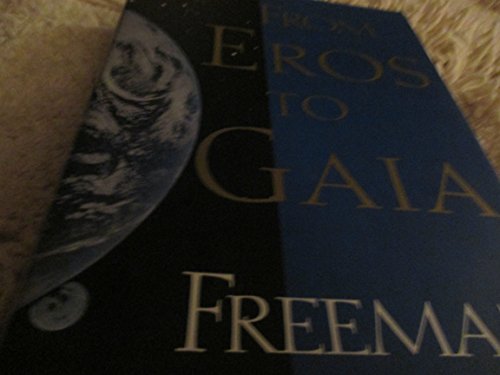
From Eros to Gaia
کتاب های مرتبط
- اطلاعات
- نقد و بررسی
- دیدگاه کاربران
نقد و بررسی

May 4, 1992
Migration to other planets as a means to ensure human survival . . . The storage of garbage and nuclear wastes in outer space . . . An international reforestation program to restore climatic equilibrium. These are some of the proposals set forth by Dyson ( Disturbing the Universe ) in a challenging collection of essays, lectures and reviews spanning six decades. Urging the abolition of sea-launched cruise missiles, Dyson credits Russian leaders with sincerity in their desire for drastic disarmament. He pens cautionary tales illustrating the human frailties of scientists, and condemns as ``bad scientifically'' the Supercolliding Superconductor, a proposed $8 billion machine for high-energy physics research. In a sketch written at the age of nine, he depicts an astronomer tracking Eros, a minor planet that revolves 180 million miles from the Sun. Along with articles on quantum field theory and the mystery of unaccounted-for carbon in the biosphere, there are tributes to Richard Feynman and Paul Dirac, a travel sketch on Armenia and Dyson's proposed 60-year program for space science, including manned missions to Mars.

July 1, 1992
Thirty-five essays, book reviews, lectures, and even a science fiction short story written at age ten make up this collection spanning Dyson's career as writer and physicist. "Instead of history, I give you anecdotes. Instead of analysis, I give you opinions," writes Dyson in the essay "Strategic Bombing in World War 2 and Today: Has Anything Changed?" This aptly describes the whole collection. The pieces, which date from the 1950s to 1990, are reprinted from books and articles, and they are presented with little revision or updating. Readers will find some duplication in subject matter. Recurring themes include Dyson's opinion that the trend toward "big science" is squeezing out worthy, cost-effective, smaller-scale projects in physics, astronomy, and space exploration; that intellectual mavericks make more stimulating creative colleagues than many of the Ph.D.'s cranked out by academia; and that science must not lose its connection with humanity and the arts. Appropriate for public libraries. Previewed in Prepub Alert, LJ 12/91 . -- Laurie Tynan, Montgomery Cty.-Norristown P.L., Pa.
Copyright 1992 Library Journal, LLC Used with permission.

























دیدگاه کاربران